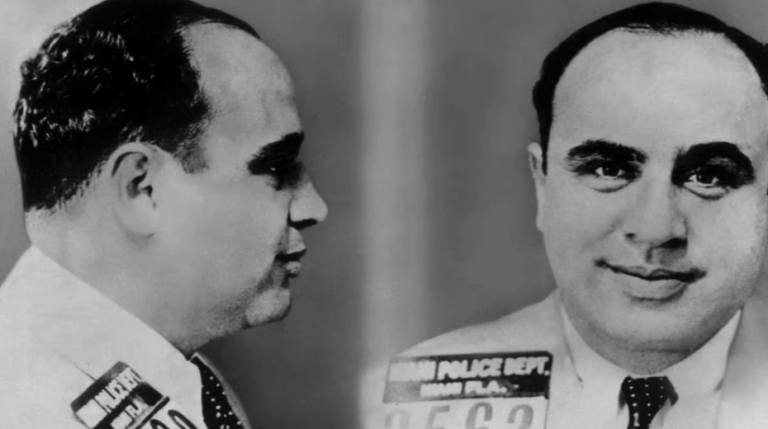Author: Shelby Benavidez
Contributing Attorney: Spencer Smith, attorney team lead
If you’ve ever been present in court, or even seen a trial on TV, you’ve probably heard the question: “Do you solemnly swear that you will tell the truth, the whole truth, and nothing but the truth?” This is an oath required of all witnesses who provide sworn testimony, ensuring that they are giving honest information to the best of their ability. If they fail to honor that oath, it’s considered perjury.
But what if you don’t intentionally lie – or what if you do? What are the consequences? We’ll break down what perjury really means, provide common examples, explain how you can prove perjury, and walk through what the Texas law says about perjury.
Understanding Perjury and How It Works
What Exactly Does Perjury Mean?
Perjury refers to the act of knowingly making a false statement under oath or affirming the truth of something you know is actually false when the law requires honesty. In order for perjury charges to stick, you have to check a few boxes. For example, the false statement must be given after you have been sworn under oath or in situations where you are legally required to tell the truth, such as during a court testimony, a deposition, or an affidavit.
You also need to be aware that your statement is untrue. Honest mistakes or confusion usually don’t count as perjury because there needs to be intent to mislead the court or cover up the truth. Finally, the lie or false statement needs to be relevant to the case and important enough to influence the outcome. Basically, not every lie is perjury. If you lie about what you had for dinner last night, even under oath, it usually wouldn’t be considered perjury unless it somehow swayed the opinion of the judge or jury.
What Are Some Examples of Perjury?
Since not every lie is considered perjury, let’s put it into perspective. Many perjury offenses happen during court proceedings. Let’s say a witness is testifying in a robbery trial. The witness claims he never saw the defendant at the crime scene, despite knowing he was there because he saw him moments before. This lie could be perjury because his statement has the potential to impact the outcome of a guilty verdict.
Perjury doesn’t only happen in a courtroom, though. Perjury offenses could also happen while signing an affidavit or during a deposition. For example, if someone signs a sworn affidavit saying they were at home during the time of a crime when they know they were not, that is a false sworn statement and potential perjury. Or let’s say a defendant is giving a deposition under oath after a car accident, and they claim they were not working for anyone at the time they caused the wreck. If it comes to light that they were acting in the course and scope of employment, that could be considered perjury.
It’s important to note that saying “I don’t remember” when you genuinely can’t recall, or making an honest mistake, usually doesn’t qualify as perjury. On the other hand, it’s also worth noting that signing certain legal or government documents under the phrase “under penalty of perjury” means you’re swearing the information is true. Lying on those documents, such as tax forms, can also count as perjury.
How to Prove Perjury
Proving perjury can be challenging because prosecutors have to demonstrate that each legal element is met beyond a reasonable doubt. Sometimes, physical evidence is available to prove things like the person was under oath, such as court transcripts or a signed affidavit, or that the statement was false, often supported by documents, records, or other witnesses, and that the false statement is related to something significant in the case.
However, knowledge and intent also have to be proven, which is where things get difficult. The prosecution must prove the person knew the statement was false and intended to mislead the court, and without physical evidence, such as a text message or written agreement, the judge or jury may not be convinced beyond a reasonable doubt. Because the bar is so high, perjury cases are not common. Courts often deal with false statements through credibility challenges known as impeachment, rather than criminal prosecution.
Perjury in Civil and Criminal Law
Does Perjury Exist in Civil and Criminal Law?
Perjury exists whenever and wherever sworn oaths are present, meaning it can occur in both civil and criminal proceedings. In civil cases, people can commit perjury during depositions, in affidavits, or in sworn interrogatories. On the flip side, perjury often arises in criminal trials when witnesses, defendants, or others make false statements under oath.
In both contexts, perjury is treated as an offense against the integrity of the judicial system itself – not just a crime against one person. However, penalties for perjury depend on whether it’s prosecuted under federal or state law.
Federal Law
Under Title 18, U.S. Code § 1621, perjury occurs when a person willfully makes a false statement under oath in a case within federal jurisdiction, which can lead to fines and up to five years in a federal prison. There’s also Section 1623, which applies to false declarations in federal court or grand jury proceedings, which can result in up to ten years in prison if the proceeding is before the Foreign Intelligence Surveillance Court.
State Law
Each state sets its own perjury penalties, but most treat it as a felony offense. In civil cases, courts may also punish false statements with sanctions, contempt of court, or dismissal of a case, even if criminal charges aren’t filed.
When Perjury Becomes a Federal Crime
Perjury becomes a federal crime when it happens in connection with federal proceedings or agencies. Examples may include lying under oath in federal court or before a grand jury, making false statements to Congress or federal investigators, and submitting false sworn documents to federal agencies. Federal perjury cases are prosecuted by U.S. Attorneys and can result in a prison sentence of up to five to ten years, depending on the court, along with lasting damage to credibility and reputation.
Perjury Laws and Penalties in Texas
Types of Perjury in Texas
Texas law defines perjury in Chapter 37 of the Texas Penal Code, and there are two main types, including simple perjury and aggravated perjury.
Simple perjury is defined in section 37.02 and occurs when someone knowingly makes a false statement under oath or swears to the truth of something false. This type of offense is classified as a Class A misdemeanor and is punishable by up to one year in a state jail and/or a $4,000 fine.
Aggravated perjury, defined in Section 37.03, is a more serious form of perjury that happens when the false statement is made during an official proceeding and is material to that proceeding’s outcome. Aggravated perjury is a third-degree felony and punishable by two to ten years in a state prison, with up to a $10,000 fine.
In both cases, the person must intend to deceive and know the statement’s meaning. However, if found guilty of perjury, it could go on your criminal record, affecting jobs and housing, and resulting in a loss of professional licenses or public office, reduced credibility in future legal matters, and restrictions on civil rights after a felony conviction.
How to File Perjury Charges in Texas
If you believe someone committed perjury in Texas, here are a few steps you can take to build your case:
- Collect evidence by gathering transcripts, documents, or recordings showing the false sworn statement.
- Prove a contradiction by showing how the false statement conflicts with the truth.
- Show materiality by demonstrating that the lie could have influenced the case’s outcome.
- Contact law enforcement or consult with an attorney to present the evidence.
- If prosecutors find sufficient evidence, they may seek an indictment or file a criminal complaint.
- Finally, the accused will go through the normal criminal process (arraignment, trial, sentencing if convicted).
It’s essential to consult with a qualified attorney if you intend to press charges for perjury. Texas has statutes of limitations, which are specific time frames within which you can pursue a lawsuit or criminal case, of two years for misdemeanor perjury and three years for felony (aggravated) perjury. Depending on the situation, the accused might qualify for probation or deferred adjudication instead of immediate incarceration.
Perjury Overview: The Main Takeaway
Perjury is more than just lying – it’s a deliberate act of deception that strikes at the foundation of truth in the legal system. Whether in a civil deposition, a criminal trial, or a written affidavit, perjury undermines justice and can carry severe penalties, including jail time and fines.
In Texas, as in federal law, perjury can range from a misdemeanor to a felony, depending on where and how the false statement is made. The key elements, including intent, knowledge, and materiality, make it difficult to prove but are very serious when established.
Understanding perjury helps individuals approach legal proceedings with honesty and awareness. Telling the truth under oath is a moral duty and a legal obligation that protects both individuals and the justice system as a whole.




